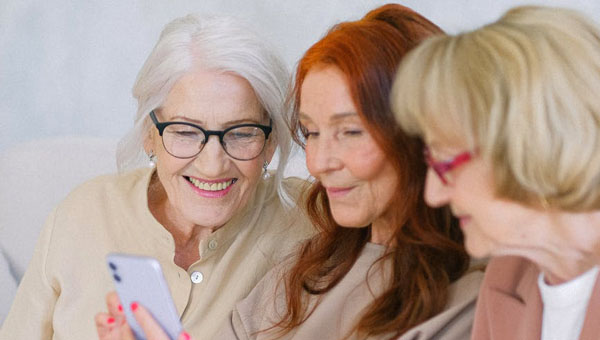By Yvonne Sam
Contributing Columnist
 Social exclusion is the process, through which individuals or groups are excluded from facilities, benefits and the opportunities that the others enjoy.
Social exclusion is the process, through which individuals or groups are excluded from facilities, benefits and the opportunities that the others enjoy.
Montréal’s population is growing older and this is expected to accelerate over the next few years. In 2016, there were 323,660 Montrealers, aged 65 or over. By 2036, this figure will be around 465,800, and most are women.
Among the social groups considered vulnerable are the elderly, and the current pandemic has affected them disproportionally. It has excluded older adults from in-person contact with others in society. As such, they must shelter, in place, and maintain physical distance from others during this pandemic.
The Acts of Exclusion
Digital technologies pervade all aspects of life. The internet is a key example of modern digital technology that enables people to overcome physical distance, through digital social connections.
Older adults are less likely to be able to take advantage of the opportunities, enabled by modern information and communication technologies, such as smart-phones, tablets, and high-speed internet services. They tend to opt not to use the Internet or cannot afford Internet access.
Additionally, they lack technologies with which to use video-chat apps to virtually connect with people, or lack the skills to use certain technologies, even if they do have access.
Physical or cognitive limitations may prevent seniors, in long-term care facilities, from being able to use communication technologies on their own, without assistance from others. Non-participation in the digital world leads older adults to feel social exclusion during times of physical distancing.
The global social-distancing mandates during COVID-19, minimize social contact, but many people circumvent these limitations by using communication technologies to remain connected.
The Elderly and Digital Equity
The United Nations International Day of Older Persons 2021 theme, “Digital Equity for All Ages”, predicates the need for access and meaningful participation in the digital world by older persons.
Digital equity is necessary for civic and cultural participation, employment, lifelong learning, and access to essential services. Older persons experience digital inequity to a greater extent than other groups in society. They are often not benefitting fully, from the opportunities provided by technological progress.
Sadly, most tech gurus at stores, online or on help lines are young people using unfamiliar terms or speeding through explanations. Now is the time to cross the digital barrier. The theme resonates loud and clear: now is the time to bring technology to the entire aging population. The need is increasing and not disappearing.
Older adults can learn technology, but it must be adapted for them and made accessible, and this is not happening. Older adults lack connected devices and internet access; devices are too expensive for those on limited incomes, and internet connectivity packages often do not consider the needs and uses of this demographic.
Conclusively, while the obstacles are many, it is imperative that older adults attain digital literacy and get connected, if they are to stay relevant, employable and engaged in their local communities. They need empowering learning opportunities, not ones that make them feel overwhelmed, ignorant or helpless.
Let not the United Nations International Day of Older Persons 2021 theme seem like an unattainable dream.
Aleuta continua — the struggle continues.
Yvonne Sam, a retired Head Nurse and Secondary School Teacher, is the Chair of the Rights and Freedom Committee at the Black Community Resource Centre. A regular columnist for over two decades with the Montreal Community Contact, her insightful and incursive articles on topics ranging from politics, human rights and immigration, to education and parenting have also appeared in the Huffington Post, Montreal Gazette, XPressbogg and Guyanese OnLine. She is also the recipient of the Governor General of Canada Caring Canadian Citizen Award.
 Pride News Canada's Leader In African Canadian & Caribbean News, Views & Lifestyle
Pride News Canada's Leader In African Canadian & Caribbean News, Views & Lifestyle





